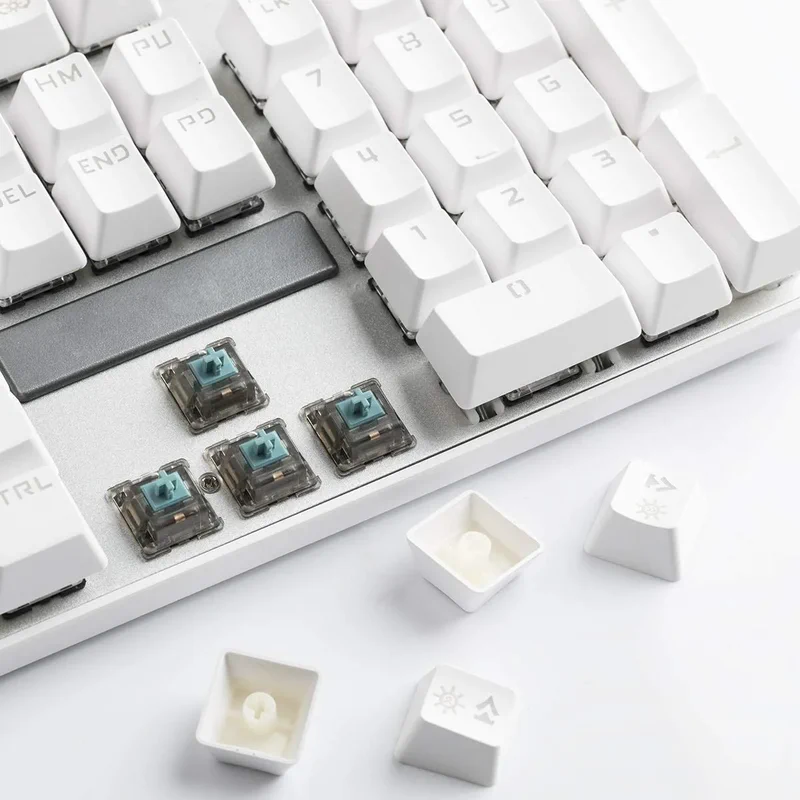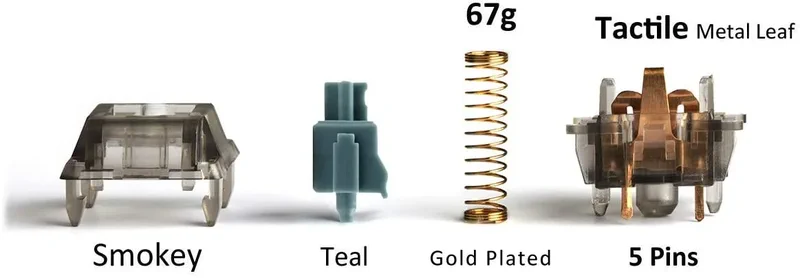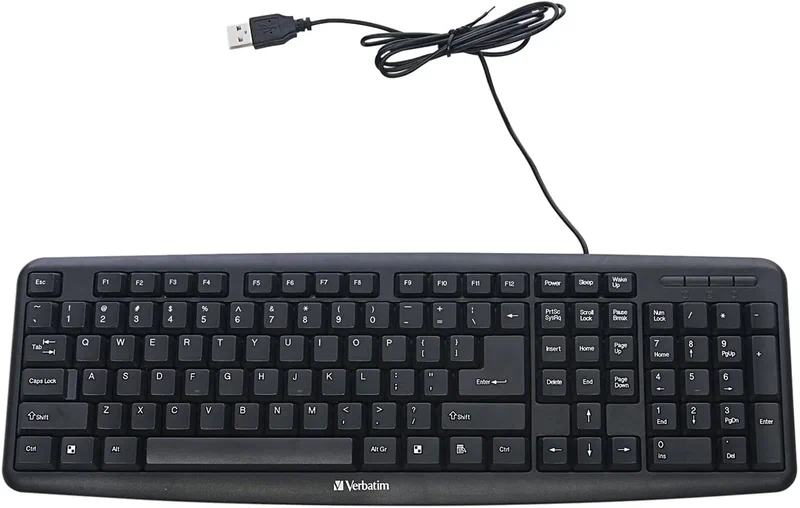Mechanical vs. Membrane Keyboards.
I own a mechanical keyboard for some time now, and I must say - in my opinion it is way better compared to my old membrane keyboard for both typing comfort and gaming performance, making it an excellent choice for programmers and gaming enthusiasts who spend hours at their computer.
Mechanical keyboards are gaining popularity as of late. While they were on the expensive side at first, you can buy (and assemble) one for under $100 today. Granted, you might need to get the keys and key caps to suit your needs in addition.
While gathering material for this article, I was surprised to find out how many mechanical keyboard enthusiasts and custom keyboard builders are out there in the World. People even have competitions over whose custom-built mechanical keyboard is better.
So, I asked myself: “What’s the hype all about?” Why do people chose mechanical keyboards over more traditional (and less expensive) membrane keyboards? Within the following paragraphs is what I was able to find out.
Mechanical Keyboards
The main difference between a mechanical and a membrane keyboard is that mechanical keyboards use key switches with springs inside them, which prolongs the lifespan of a mechanical keyboard when compared to a membrane one. For a hardcore gamer and competitive esports player, those key switches also provide better tactile feel and feedback. And more precision compared to a membrane based keyboard. We are talking e-sports level of gaming and professional gaming tournaments here, where every keystroke is important. This superior keyboard technology makes mechanical keyboards the preferred choice for serious gaming setups and professional programming environments.
There exist a few types of switches you can put into your mechanical keyboard, depending on what you are trying to achieve:
Linear switches
There is no noise or feedback when keys are pressed. Each time you press a key, you will reach the bottom of each key press (the actuation point).
Tactile switches
Tactile switches give you touch (or tactile) feedback when you hit the actuation point. I.e. you will feel a bump each time a key reaches the actuation point.
Clicky switches
A clicky switch provides you with a click sound each time the key registers (hits the actuation point).
Personally, I prefer the clicky switches because when using them, my keyboard feel like an old typewriter, which writers and programmers often love, and I like that. This nostalgic typing experience is why many software developers and content creators choose mechanical keyboards for their daily work. Of course, clicky switches produce more noise, so if that’s an issue in your case - chose the tactile switches as they are obviously quieter.
Pros of a mechanical keyboard are: long life span, durability, great typing feedback, stability. Keep in mind that in mechanical keyboards everything can be replaced - the chassis, the cord, the key switches and even the key caps (you can even have custom key caps designed to make your keyboard unique). You can even get all three switch types and try each one to see what you like best. Also, the switches can be greased for a smoother performance. That’s definitely something a membrane keyboard does not allow you to do.
Cons of a mechanical keyboard are: noise, higher price, higher weight. If you are a gamer that likes to keep your keyboard on your lap while playing, a more traditional gaming keyboard would be better for you.
Here are a few pictures of each part of a mechanical keyboard as they can be seen on Amazon:
Mechanical Keyboard Chassis. Mechanical Keyboard Switches and Key caps.

As I have already mentioned, each key switch can be taken apart and greased for better performance: The key switch and its parts.
So, to sum the mechanical part of this article - people go for mechanical keyboards when they need total control of how their keyboard feels, sounds and looks like. That is, obviously, a generalization, and as I dive deeper into the realm of mechanical keyboards, I will write more detailed reviews, so stay tuned for future updates on these essential computer peripherals for both gaming and programming productivity.
Membrane Keyboards
We all know what a membrane keyboard is. They have been around for years, and I think it would be safe to say that 90% of computers use them.

A membrane keyboard.
The membrane keyboard can not be customized in any way apart from LED lighting effects if the keyboard has RGB LEDs built in (which you can add to a mechanical keyboard too, by the way). You pretty much get what you buy and that’s it. If you have been following my articles here, you will know that membrane keyboards can be gaming keyboards too! Membrane keyboards cover what most casual gamers need and are pretty precise.
Pros of a membrane keyboard are: satisfying feedback, little to no noise, variety, small size, lower prices.
Cons of a membrane keyboard are: not as sturdy on your desk, it’s hard to replace parts, generally short life span. And most importantly - no way to customize your membrane keyboard.
Conclusion: as mechanical keyboards are getting cheaper, being as reliable and customizable as they are, they will most likely dominate the keyboard market. For now, we have to wait and see.
I hope you found this article useful. Have a good day, and thank you very much for reading it!

